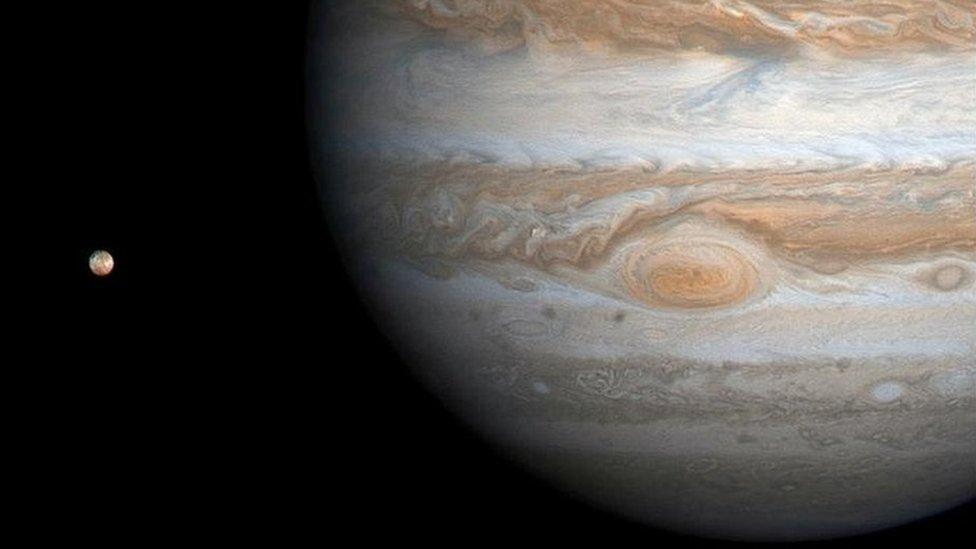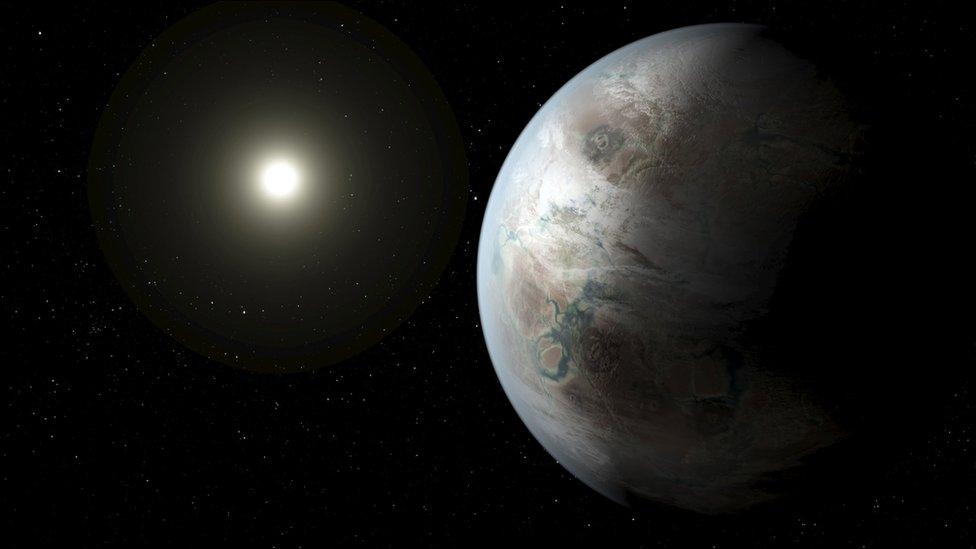Space: Giant super-hot Jupiter-like exoplanet discovered
- Published
- comments

The exoplanet - named TOI 1789 - is even bigger than Jupiter, seen here!
Scientists in India have discovered a unique new planet and it's even BIGGER than Jupiter - the largest planet in our solar system.
Named TOI 1789, the planet is 725 light years away and is what's known as an exoplanet - that's a planet that orbits a star outside of our solar system.
The surface temperature of TOI 1789 is super hot - around 1700 degrees Celsius (2000kelvin) to be exact - because it orbits very closely to its host star.
It takes just 3.2 days to complete a full orbit, compared to Earth's 365 days to orbit the Sun.
Planets like this are also known as 'hot-Jupiters' and experts say there are fewer than 10 such systems known to us here on Earth.
The discovery was made by an exoplanet search and study group at the Ahmedabad-based Physical Research Laboratory (PRL) in India.
They used a special instrument called PARAS (PRL Advanced Radial-velocity Abu-sky Search) - an optical fibre-fed spectrograph - on the 1.2 metre Telescope at its Mt. Abu Observatory.
The special instrument is able to measure planetary mass.
The space agency said: "Using PARAS, which has the capability to measure mass of an exoplanet, the exoplanet's mass is found to be 70 per cent and size about 1.4 times that of the Jupiter."
Jupiter is the largest planet in our solar system - it's so big you could fit all the other planets inside it!
Experts hope the discovery will help them learn more about how planets evolve.
"The detection of such a system enhances our understanding of various mechanisms responsible for inflation in 'hot-Jupiters' and the formation and evolution of planetary systems around evolving and aging stars," they added.
What is an exoplanet?

The exoplanet Kepler-452b was discovered earlier this year and has very close similarities to earth.
Exoplanets are planets that obit a different star than our Sun - in a different solar system to the one we are in.
Even though scientists thought for a long time that they must exist, it was only in 1992 that the first exoplanet was discovered.
Recent work to find more exoplanets has produced some exciting results too.
In 2015, scientists discovered the exoplanet Kepler-452b, which was described as 'Earth's cousin' because of its close similarities to our planet.
Space experts say exoplanets are really important because they raise the possibility that life could exist in other solar systems.
If you cannot see the quiz, click here.
- Published18 November 2021

- Published18 November 2021

- Published18 November 2021

